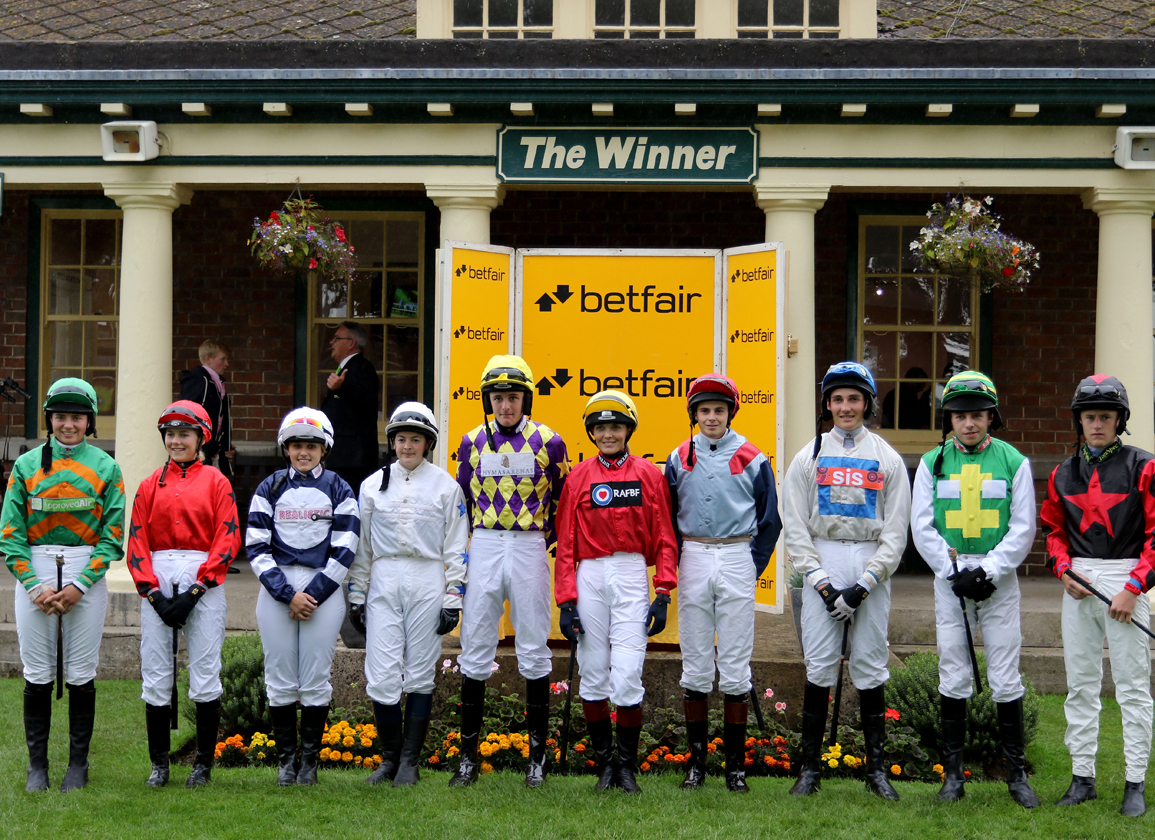By Oz Wedmore
In Global Views, Godolphin Flying Start trainees provide insight into practices experienced and observations taken on their worldwide travels. Second-year trainee Oz Wedmore examines the positive effects of amateur racing acting as a training ground for future professional jockeys.
Twitter spats are usually best avoided, being among the least productive ways to spend time on the internet. But what did Oscar Wilde say about temptation? Recently I relented and miraculously it proved worthwhile in providing an excuse to highlight the importance of the grassroots of racing.
When someone popped up to have a dig at estate agent and amateur jumps jockey David Maxwell for his misfortune in a race I felt compelled to reply. I still haven't watched the race that caused the minor uproar because I didn't get involved to defend David's riding; I did so because those who understand how important the grassroots of our sport are to its success on the world stage would never direct vitriol towards an amateur rider. People like David are important, and should never be the subject of scorn over their riding ability.
Some may see the amateur system as a vestige of racing's roots clinging to the professional sport we know today, but it's difficult to marry this claim against the disproportionate number of the world's top jockeys, both Flat and Jumps, coming from nations which have a healthy grassroots scene in the form of flapping, pony racing, point-to-points and races under rules restricted to amateur riders. This is something that all Europeans from the flappers in the bogs of Kerry to the cavaliers in the sunshine of Pau play a part in and should be proud of. It is why we see top level riders emerging from all over the continent–from Sardinia to County Antrim.
Just as in other sports, the amateur level serves a dual purpose as both a springboard and training ground for future stars in the saddle and a competitive circuit for non-professionals. Unsurprisingly and not unfairly, David Maxwell sits firmly in the latter category along with thousands of others. The attention he attracts comes only because he can afford to enjoy his hobby at the highest level. And who should deny him this? He is the embodiment of a gentleman amateur: unfailingly polite, humble and self-deprecating both on- and off-camera. Do not forget that by placing horses in training he is supporting jobs, vendors, racecourses and so on.
Obviously this is a luxury few can afford. Despite the comprehensive education offered to complete novices by the racing schools in England, Ireland and France, the barrier to entry for jockeys is still high and as a consequence nepotism is an often unfair accusation which faces some of horseracing's prominent figures. When it comes to jockeys it is hardly surprising that some of the world's best are related to some of the world's best from previous eras (or the same era in some cases). It's hardly surprising because top-level riding is not just in one's genes, it comes through experience. And who is most likely get the necessary years of practice? Those born into it.
There are of course exceptions but none arrive at the point of professionalism without the long hours of requisite practice. The 'nepotism' extant in our sport only serves to prove that the grassroots are vital, they provide the platform for the practice needed to nurture future top jockeys. Any number of current professionals at the top of their game can attest to this, but to name just three: Sam Twiston-Davies (point-to-point); Tom Marquand (pony racing); David Egan (flapping).
Those in David Maxwell's category should not be judged against aspiring professionals because clearly, in his 40s and riding exclusively in his own colours, he has no aspiration to join their ranks. Nor do many others who make the jumps game in particular such a peculiar and entertaining sphere and a game of great battlers (horses and humans alike)–quite literally in the case of Guy Disney, the first person to be signed off by the BHA to ride with a prosthetic limb. However, far from just making up the numbers, the 'traditional' amateurs are helping to keep the standard of grassroots racing high with their investment in the sport. If David Maxwell happens to be turned over when odds-on I'd sooner comment on the strength of our grassroots racing, or perhaps the talent of his rivals, than his ability in the saddle.
Call amateur racing a vestige if you like, but instead I'll summarise my point by rehashing the old adage: practice makes the best professional jockeys in the world.
Not a subscriber? Click here to sign up for the daily PDF or alerts.






